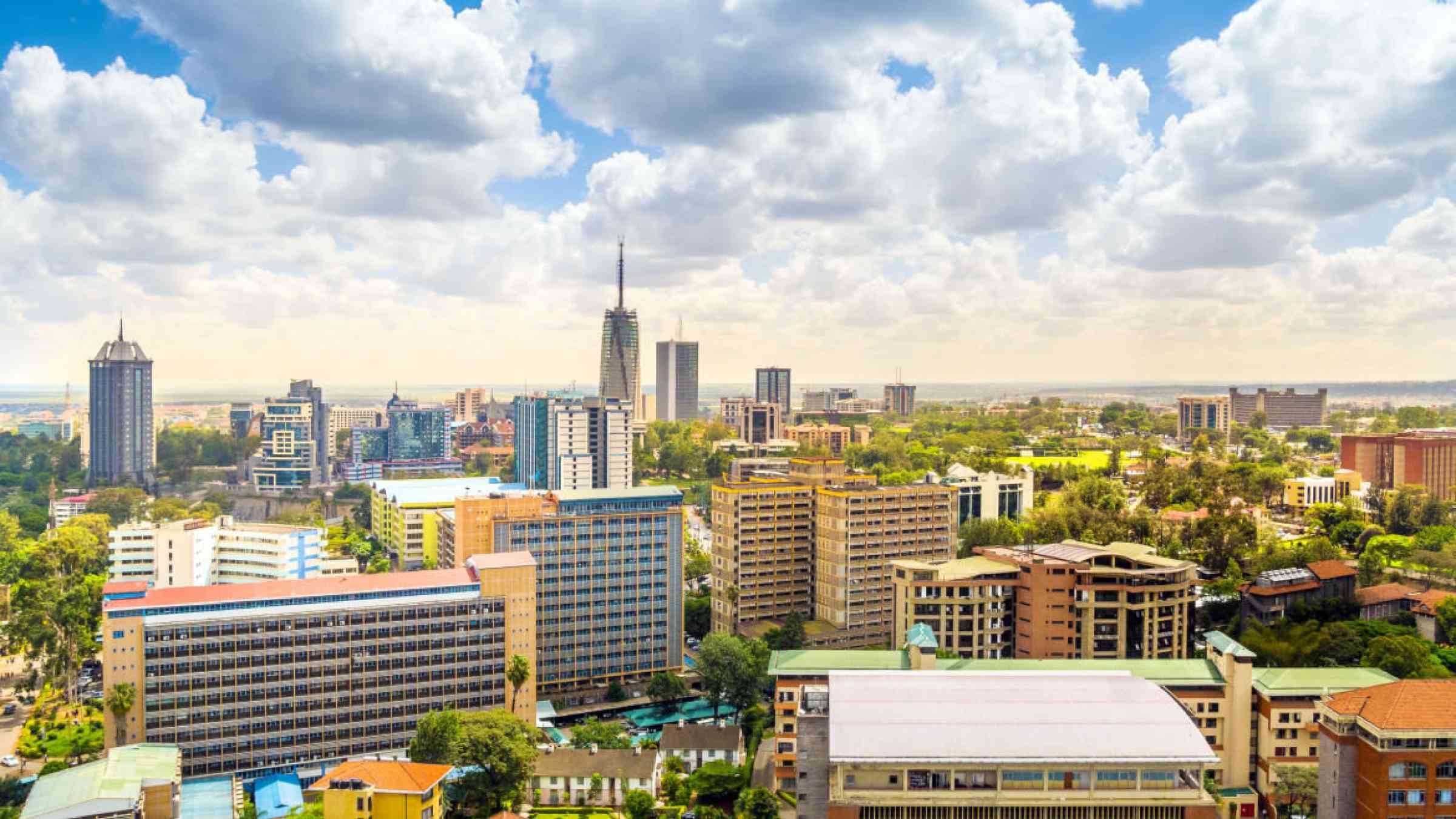To reach Sendai Framework goals, UNDRR is working with the private sector in Africa

On 30 November 2022, the United Nations Office for Disaster Risk Reduction (UNDRR) Regional Office for Africa, held a consultative meeting on the Private Sector Alliance for Disaster Resilient Societies (ARISE) to discuss and gather ideas and good practices to support an ARISE pilot study in Kenya.
The pilot study, in co-creation with the business community, aims to apply existing knowledge and tools to establish a sustainable, scalable and effective national and regional ARISE network specifically in Kenya but with a wider focus on east African region .
ARISE is a UNDRR-led network of private sector entities whose objectives are anchored around awareness raising with respect to disaster risk and mobilization of the private sector; exercising influence in respective spheres of expertise; sharing knowledge, experience, and good practices amongst the private sector; catalyzing the generation of innovation and collaboration; and implementing projects and activities to achieve the targets of the Sendai Framework. The ARISE Africa Network was established in 2020 and encompasses ARISE South Africa, ARISE East Africa, and CORAF (West and Central Africa Council of Agricultural Research and Development) as an affiliate member.
The proposed Kenya/East Africa ARISE network pilot project, in partnership with the United Parcel Services (UPS) Foundation, will provide a standardized strategic thrust as a benchmark for establishing other national and regional ARISE networks in other subregions within the African continent.
“We are proud to fund and take place in this meeting and work in humanitarian relief and DRR through, for example, vaccine distribution in Africa, and funding logistic support in humanitarian emergencies,” said Caroline Kiunga from UPS during the opening session of this meeting.
The envisioned structure is to have sub-regional ARISE networks represented at all corners of Africa while maintaining strong collaboration with regional and global networks. Currently, ARISE has more than 400 members who have voluntarily committed to support and implement the Sendai Framework Disaster Risk Reduction 2015 – 2030, aligned with the 2030 Agenda for Sustainable Development and its Sustainable Development Goals (SDGs), Paris Climate Agreement, New Urban Agenda and Agenda for Humanity.
During the 30 November meeting, UNDRR explained what ARISE is and talked through the Kenya pilot study. During a group work session, participants discussed the critical factors and criteria for establishing a scalable ARISE and private sector network.
Nijoki Mwarumba of Invest In Africa stressed the importance of industries working together and being aware of misinformation when it comes to hazards, particularly pandemics such as the COVID-19 pandemic. She made the case that facts are good for business.
One issue that came up was that of working in isolation and a lack of collaboration between sectors. The meeting discouraged working in silos and urged collaboration by exploring the challenges the private sector and public sectors face. It found there is a need for a bottom-up approach to issues, including all levels of the private sector and up to policy making.
Still, the conference was a success, so much so that neighboring countries wanted to become involved.
The need to expend the ARISE network in the entire East African region was emphasized. “When Kenya is happy, Uganda is happy. When Tanzania is happy, Kenya is happy. When Uganda has problems, Kenya will also not stay calm,” Rachael Daisy Mirembe from Makerere University in Kampala, Uganda said. “What am I trying to say? That disaster preparedness has started in Kenya, but until we come to our neighbors the impact will not be there. Please also come to Uganda and we will do the same. We have the private sector; we are ready to walk with you.”
Small and Medium Enterprise (SMEs) are considered the backbone of African economies, since they represent about 90 per cent of all private businesses and account for more than 60 per cent of employment in most African countries. However, SMEs have low chances of survival and expansion due to constraints on their profitability (UNECA 2020).
The ARISE Africa Network creates opportunities to learn from each other and share best practices to build risk-resilient businesses. When the private and public sectors work together, real DRR change can begin.